第12章 CHAPTER Family(6)
The human traits are true to-day. Then at last our souls throw aside their conventional wrappings to stand revealed as they really are. Certain of comprehension, the thoughts we have never dared breathe to any one before, find a tongue for her who seems fore-destined to understand. The long-closed floodgates of feeling are thrown wide, and our personality, pent up from the time of its inception for very mistrust, sweeps forth in one uncontrollable rush. For then the most reticent becomes confiding; the most self-contained expands. Then every detail of our past lives assumes an importance which even we had not divined. To her we tell them all,--our boyish beliefs, our youthful fancies, the foolish with the fine, the witty with the wise, the little with the great.
Nothing then seems quite unworthy, as nothing seems quite worthy enough. Flowers and weeds that we plucked upon our pathway, we heap them in her lap, certain that even the poorest will not be tossed aside. Small wonder that we bring as many as we may when she bends her head so lovingly to each.
As our past rises in reminiscence with all its oldtime reality, no less clearly does our future stand out to us in mirage. What we would be seems as realizable as what we were. Seen by another beside ourselves, our castles in the air take on something of the substance of stereoscopic sight. Our airiest fancies seem solid facts for their reality to her, and gilded by lovelight, they glitter and sparkle like a true palace of the East. For once all is possible; nothing lies beyond our reach. And as we talk, and she listens, we two seem to be floating off into an empyrean of our own like the summer clouds above our heads, as they sail dreamily on into the far-away depths of the unfathomable sky.
It would be more than mortal not to believe in ourselves when another believes so absolutely in us. Our most secret thoughts are no longer things to be ashamed of, for she has sanctioned them.
Whatever doubt may have shadowed us as to our own imaginings disappears before the smile of her appreciation. That her appreciation may be prejudiced is not a possibility we think of then. She understands us, or seems to do so to our own better understanding of ourselves. Happy the man who is thus understood!
Happy even he who imagines that he is, because of her eager wish to comprehend; fortunate, indeed, if in this one respect he never comes to see too clearly.
No such blissful infatuation falls to the lot of the Far Oriental.
He never is the dupe of his own desire, the willing victim of his self-illusion. He is never tempted to reveal himself, and by thus revealing, realize. No loving appreciation urges him on toward the attainment of his own ideal. That incitement to be what he would seem to be, to become what she deems becoming, he fails to feel.
Custom has so far fettered fancy that even the wish to communicate has vanished. He has now nothing to tell; she needs no ear to hear.
For she is not his love; she is only his wife,--what is left of a romance when the romance is left out. Worse still, she never was anything else. He has not so much as a memory of her, for he did not marry her for love; he may not love of his own accord, nor for the matter of that does he wish to do so. If by some mischance he should so far forget to forget himself, it were much better for him had he not done so, for the choice of a bride is not his, nor of a bridegroom hers. Marriage to a Far Oriental is the most important mercantile transaction of his whole life. It is, therefore, far too weighty a matter to be entrusted to his youthful indiscretion; for although the person herself is of lamentably little account in the bargain, the character of her worldly circumstances is most material to it. So she is contracted for with the same care one would exercise in the choice of any staple business commodity.
The particular sample is not vital to the trade, but the grade of goods is. She is selected much as the bride of the Vicar of Wakefield chose her wedding-gown, only that the one was at least cut to suit, while the other is not. It is certainly easier, if less fitting, to get a wife as some people do clothes, not to their own order, but ready made; all the more reason when the bargain is for one's son, not one's self. So the Far East, which looks at the thing from a strictly paternal standpoint and ignores such trifles as personal preferences, takes its boy to the broker's and fits him out.
That the object of such parental care does not end by murdering his unfortunate spouse or making way with himself suggests how dead already is that individuality which we deem to be of the very essence of the thing.
Marriage is thus a species of investment contracted by the existing family for the sake of the prospective one, the actual participants being only lay figures in the affair. Sometimes the father decides the matter himself; sometimes he or the relative who stands in loco parentis calls for a plebiscit on the subject; for such an extension of the suffrage has gradually crept even into patriarchal institutions. The family then assemble, sit in solemn conclave on the question, and decide it by vote. Of course the interested parties are not asked their opinion, as it might be prejudiced.